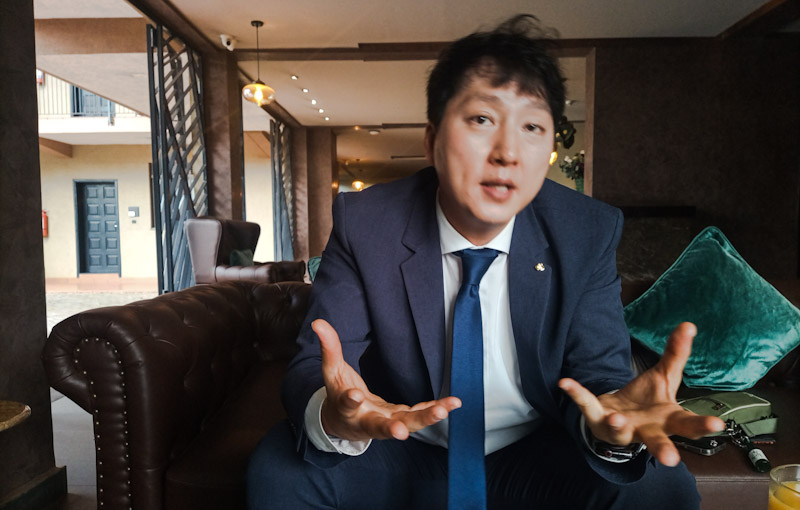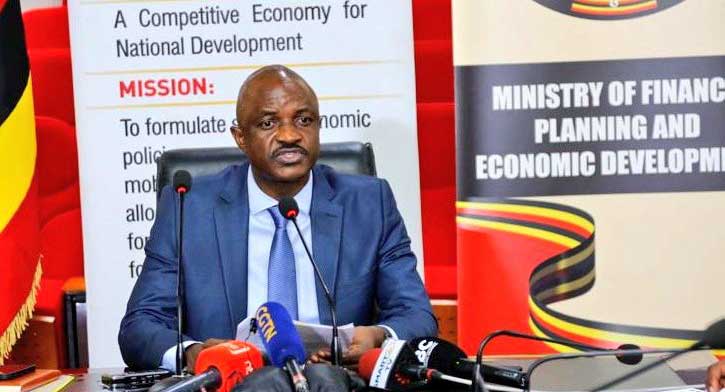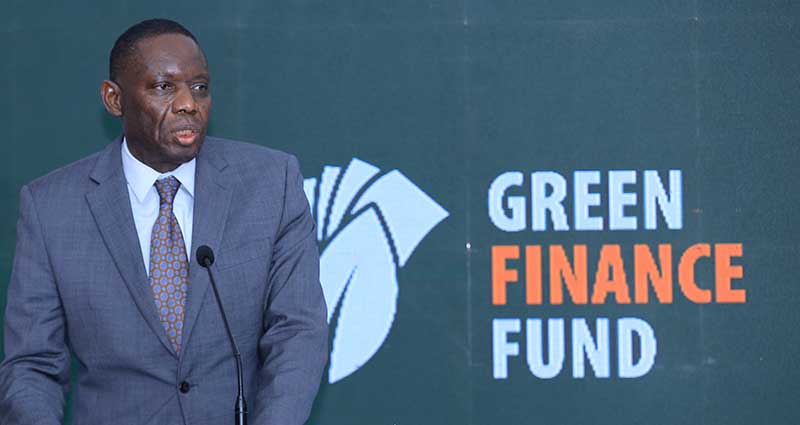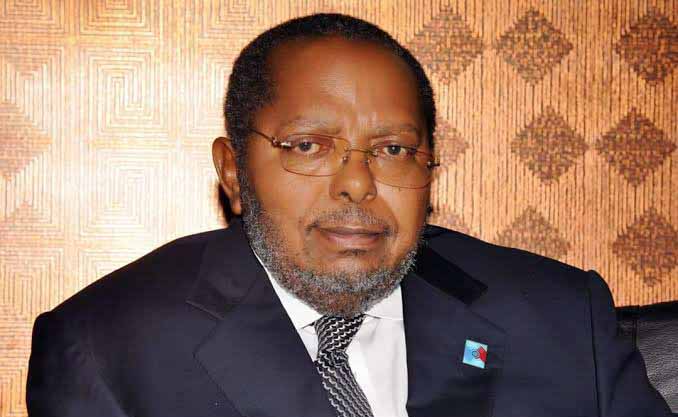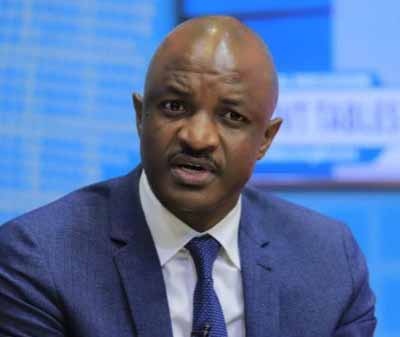The dichotomous battle between Museveni and Besigye has caused a political stalemate that is reversing most of the strides the country had made!
Mr. President, this week let’s talk democracy. Its trackers across the globe think your government is no longer democratic. They have baptized you one of the “Anxious Dictators” responsible for “a massive decline in the freedom of their own citizens.”
This is not good for your “Kisanja Hakuna Mchezo” drive launched recently to deliver Uganda into the middle income status in the next five years. Research shows that countries with more freedom under democratic institutions outperform those with authoritarian governments.
Yet development economics teaches us that poor countries often find it difficult to build and sustain democratic institutions. Generations of research have established that democracies only fail in poor countries.
Since 1946, 47 democracies have collapsed in poorer countries. Yet no democracy ever, including the period before World War II, has fallen in a country with a per capita income higher than $6,055. Affluent democracies survive wars, riots, scandals, economic and governmental crises, and catastrophes.
The expected life of a democracy (not government per se) increases with economic prosperity. Recent research by Adam Przeworski, one of my favourite analysers of democratic societies, shows that the expected life of a democracy in countries with per capita income under $1,000 is about 12 years. And I think his research is strong and robust.
Take the example of Uganda. One may be right to say that Uganda became a democratic nation, for the first time in its history, in 1996 after the promulgation of the first ever pro-people 1995 Constitution (the original edition). Few could question Uganda’s democratic credentials in the second half of the 1990s through early 2000s. I think Uganda’s democratic credentials started to diminish after the 2006 elections, and the deterioration worsened after 2011.
Uganda “Not Free”?
Mr. President, very many people, here and outside the country, now think Uganda is no longer a democratic country, or at least a “Principled Democracy” – where individual rights are protected with majority rule, independent judiciary, political competition, and rule of law.
Some say that what we have in Uganda today, although may not be reduced to outright dictatorship, is “Process Democracy” – election of leaders by citizens in periodic elections.
The most widely used index of democracy is the Freedom House Index (FHI) that ranges from 1 to 7, where 1 indicates that a country is “completely free”, and 7 that a country is “completely authoritarian.” The 2016 FHI has ranked Uganda as “Not Free,” with key democracy indicators such as political rights and civil liberties ranked 6 and 5 respectively. This was the first time Uganda suffered such a bad rank since 1999 when the country was first included in the FHI.
Why? What explains our systematic deterioration in democratic governance? Mr. President, although many would want to point the accusing finger at your insatiable appetite for power (which has led your government to condone and/or promote some of the very evils it fought during the liberation struggles), Przeworski’s research shows that would be a mistake.
Your voracious ‘appetite for power’ and our failure to tame it could be a symptom but not the cause of the transition from the democracy you ushered in back in 1986 to the 2015/16 repression.
The cause lies in the fact that Uganda is still structured to experience regime transition. With the current per capita income of $670, Uganda is among the poorest countries on earth. As already seen above, poverty fails democracy. At such very low incomes per capita, Uganda could only sustain democracy and its attendant liberties for utmost 12 years, after which a reversal of fortunes inevitably occurred.
Evidence shows that for countries, whose per capita income is between $1,001 and $3,000, the expected life of their democracies is 27 years, while those between $3,001 and $6,055, it’s about 60 years. Above $6,055, democracy lasts forever.
One party control is counterproductive
Nearly sixty years ago, researchers confirmed that the more well-to-do a nation is, the greater the chances it will sustain democracy. This is what political scientists refer to as the “modernisation theory” — prosperity leads to emergence of prerequisites to democracy.
Why does democracy survive in rich countries? The reason everyone opts for democracy in affluent societies is that too much is at stake in turning against it. In this case, even permanent electoral losers prefer to obey election results. It is not political correctness or politeness that motivates leaders in rich countries to obey the results of electoral competition. Never! It is not even the so-called strong institutions. The reason leaders of countries such as the UK, the U.S., Japan or even South Africa do not even attempt to manipulate the rules to stay in power is risk aversion.
Above some income level, researchers have found, losers accept an electoral defeat even when the political institutions offer them no future chance to win, simply because they have too much to risk in turning against democracy.
That is why I often tell my friends in political activism to preach not only about political reforms, but also and even more about economic reforms. Evidence is clear: democracy is unlikely to be established in a poor country. My vote can easily be cancelled out by a fellow whose main mission was to get a campaign T-Shirt and/or one kilo of sugar!
However, of course political factors also matter. Research has also found that democracies are more likely to succumb when one party controls a large share (more than two-thirds) of seats in the parliament. Again Uganda is a perfect laboratory for this.
Moreover, evidence further indicates that democracies are most stable when the heads of governments change every so often, particularly every five years. This could partly explain why Kenya is the “freest” country in this region, according to the 2016 Freedom House Index.
Why are you allergic to political opposition?
Mr. President, these observations indicate that democracy is more likely to survive when no political force dominates completely and permanently. Your obsession with having your party, the National Resistance Movement (NRM), taking every single elective office in the country (by hook or crook) will only be counterproductive to your goal of keeping the party in power for longer periods. It will also fail the few pillars of democracy you had established.
Mr. President, to build, sustain and consolidate democracy, you will need to do two things: (1) accepting political opposition as legitimate, and (2) facilitating economic reforms to enable people have access to wealth and income outside the government.
On No.1, you seem allergic to political opposition. You don’t want to give them any space to compete. This has led the opposition, led by Dr. Kizza Besigye, to look at you as the country’s main problem and thus invest all their efforts towards removing you. In the process this dichotomous battle between you and Besigye has caused a political stalemate that is reversing most of the strides we had made.
On No.2, your politics of patronage has turned Uganda into a country of rent seekers. Everyone wants and expects free money from government. We have failed to build a private sector independent of the government. Instead of creating wealth, our private sector “entrepreneurs” are busy strategizing to receive rents from the treasury.
Mr. President, I know you are committed to building Uganda and transforming it into a middle income country before you leave power. I also know that you care a lot about your legacy. I want you to know this; the past five years have damaged your reputation as a democratic pro-people leader.
The February 2016 election drained your legacy as a statesman. Now that you have this five-year term under your fist, do not chest thump. Find ways of balancing both the political and economic reforms. This country is in dire need for both. Even religious leaders have accepted; prayers won’t work!


